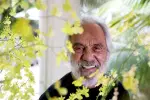Yesterday the Supreme Court declined to grant relief to Wisconsin Democrat party operatives seeking to set aside a Stay issued by the Seventh Circuit Court of Appeals.
The Seventh Circuit Order prevented a variety of changes to Wisconsin election law from being implemented — changes that had been created and imposed by a federal district court judge in Wisconsin in response to COVID-19 concerns — allegedly.
There is no “majority” opinion when the Court declines to issue any form of relief on an emergency application. But Justices can, and often do write statements that reflect their individual thinking on the case, and those statements are sometimes joined by others. Yesterday’s decision on the Wisconsin case produced four such statements.
Justice Roberts joined with the four other conservatives in leaving the Seventh Circuit decision in place, and his justification for doing so was that it was not the role of a federal court to rewrite state election laws on the eve of an election. But he makes clear in his very short statement that he sees the Wisconsin matter differently than the pending Pennsylvania case, where he has already voted to not step in and stop changes made to Pennsylvania election law by the Pennsylvania Supreme Court. The key variable to him is the degree to which the US Supreme Court should insert itself into the Judicial functioning of state courts on issues of state law. He says quite plainly at the end that Wisconsin election law should not be changed on the eve of the election, but that Pennsylvania election law may.
Justice Gorsuch wrote a statement that I think will resonate most with non-lawyers, so I’m going to just quote from it at length.
COVID. Because of the current pandemic, the [district] court suggested, it was free to substitute its own election deadline for the State’s. Never mind that, in response to the pandemic, the Wisconsin Elections Commission decided to mail registered voters an absentee ballot application and return envelope over the summer, so no one had to ask for one. Never mind that voters have also been free to seek and return absentee ballots since September. Never mind that voters may return their ballots not only by mail but also by bringing them to a county clerk’s office, or various “no touch” drop boxes staged locally, or certain polling places on election day. Never mind that those unable to vote on election day have still other options in Wisconsin, like voting in-person during a 2-week voting period before election day. And never mind that the court itself found the pandemic posed an insufficient threat to the health and safety of voters to justify revamping the State’s in-person election procedures.
So it’s indisputable that Wisconsin has made considerable efforts to accommodate early voting and respond to COVID. The district court’s only possible complaint is that the State hasn’t done enough. But how much is enough? If Wisconsin’s statutory absentee voting deadline can be discarded on the strength of the State’s status as a COVID “hotspot,” what about the identical deadlines in 30 other States? How much of a “hotspot” must a State (or maybe some sliver of it) be before judges get to improvise? Then there’s the question what these new ad hoc deadlines should be. The judge in this case tacked 6 days onto the State’s election deadline, but what about 3 or 7 or 10, and what’s to stop different judges choosing (as they surely would) different deadlines in different jurisdictions? A widely shared state policy seeking to make election day real would give way to a Babel of decrees. And what’s to stop courts from tinkering with in-person voting rules too? This judge declined to go that far, but the plaintiffs thought he should have, and it’s not hard to imagine other judges accepting invitations to unfurl the precinct maps and decide whether States should add polling places, revise their hours, rearrange the voting booths within them, or maybe even supplement existing social distancing, hand washing,and ventilation protocols.
[D]emocratic processes can prove frustrating. Because they cannot easily act without a broad social consensus, legislatures are often slow to respond and tepid when they do. The clamor for judges to sweep in and address emergent problems, and the temptation for individual judges to fill the void of perceived inaction, can be great. But what sometimes seems like a fault in the constitutional design was a feature to the framers, a means of ensuring that any changes to the status quo will not be made hastily, without careful deliberation, extensive consultation, and social consensus. Nor may we undo this arrangement just because we might be frustrated. Our oath to uphold the Constitution is tested by hard times, not easy ones. And succumbing to the temptation to sidestep the usual constitutional rules is never costless.
Judge Gorsuch addresses the issue in a way more to my liking — that federal judges must recognize their authority over the lives of others has some ending point, and the responsibility beyond that point lays with others. There is a boundary somewhere that than “doing good.” This is a fundamental difference between the philosophies of the two political parties as played out in the conduct of the selections each makes for open judgeships.
Justice Kavanaugh’s statement — and Justice Kagan’s statement largely in response — stakes out more deliberately the legal ground where this fight is going to be waged in the coming days.
He first states that the Purcell principle — that federal courts should not insert themselves into the gears of state election machinery on the eve of an election — should have prevented the district court from taking the actions it took. Second, he goes back to a point he has made previously regarding COVID-19 and public health considerations, stating that it was not for the district court dictate state law based on public health considerations. The Constitution places those kinds of decisions in the hands of politically accountable state legislatures, not unelected federal judges.
It follows “that a State legislature’s decision either to keep or to make changes to election rules to address COVID–19 ordinarily ‘should not be subject to secondguessing by an unelected federal judiciary, which lacks the background, competence, and expertise to assess public health and is not accountable to the people.’”
Finally, he noted that all elections have deadlines for submitting ballots. As a consequence there is always a risk that some number of voters will fail to comply with the deadline and their vote won’t be counted. But that fact does not mean the deadline substantially burdens the right to vote. The only significant question is whether the established deadline is unreasonable, and there is no basis to make such a finding here.
A deadline is not unconstitutional merely because of voters’ “own failure to take timely steps” to ensure their franchise. Voters who, for example, show up to vote at midnight after the polls close on election night do not have a right to demand that the State nonetheless count their votes. Voters who submit their absentee ballots after the State’s deadline similarly do not have a right to demand that the State count their votes.
BUT, as is often the case in Supreme Court decisions, there is a battle buried in a footnote that represents the real fight in the case. It is in a footnote because it is not relevant to the outcome of this case, but it is crucial to the outcome of the pending case involving the Pennsylvania Supreme Court’s 3-day extension of the deadline under Pennsylvania law for receiving any vote-by-mail ballot. This fight is set forth by Justice Kavanaugh in Footnote 1 of his statement where he takes a “textualist” view of Art. II, Sec. 1, Cl. 2 of the Constitution, stating as follows:
- A federal court’s alteration of state election laws such as Wisconsin’s differs in some respects from a state court’s (or state agency’s) alteration of state election laws. That said, under the U. S. Constitution, the state courts do not have a blank check to rewrite state election laws for federal elections. Article II expressly provides that the rules for Presidential elections are established by the States “in such Manner as the Legislature thereof may direct.” §1, cl. 2 (emphasis added). The text of Article II means that “the clearly expressed intent of the legislature must prevail” and that a state court may not depart from the state election code enacted by the legislature. Bush v. Gore, 531 U. S. 98, 120 (2000) (Rehnquist, C. J., concurring)…. In a Presidential election, in other words, a state court’s “significant departure from the legislative scheme for appointing Presidential electors presents a federal constitutional question.” Bush v. Gore, 531 U. S., at 113 (Rehnquist, C. J., concurring). As Chief Justice Rehnquist explained in Bush v. Gore, the important federal judicial role in reviewing state-court decisions about state law in a federal Presidential election “does not imply a disrespect for state courts but rather a respect for the constitutionally prescribed role of state legislatures. To attach definitive weight to the pronouncement of a state court, when the every question at issue is whether the court has actually departed from the statutory meaning, would be to abdicate our responsibility to enforce the explicit requirements of Article II.” Id., at 115. The dissent here questions why the federal courts would have a role in that kind of case. Post, at 11, n. 6 (opinion of KAGAN, J.). The answer to that question, as the unanimous Court stated in Bush v. Palm Beach County Canvassing Bd., and as Chief Justice Rehnquist persuasively explained in Bush v. Gore, is that the text of the Constitution requires federal courts to ensure that state courts do not rewrite state election laws.
This is the key to the Pennsylvania case. The Court previously split 4-4 on the question of whether the Supreme Court should step and block the Pennsylvania Supreme Court’s changes to the state’s election laws by extending the ballot receipt deadline date, among to things.
With Justice Barrett now on the Court, the question is whether she will provide the needed fifth vote to address the Pennsylvania case. As noted above, Chief Justice Roberts looks like he has drawn a line on the sand between state and federal courts when it comes to Supreme Court supervision of such judicial interference in state election laws. The other four conservatives seem prepared to advance the “Legislature” issue under Article II, Sec. 1, Cl. 2.
The implications of this are significant as it would cut off litigants in election years from going to state courts to seek relief that federal courts are less and less likely to provide. A ruling along these lines would establish a legal basis for any such ruling from a state court to be immediately challenged in federal court, and thereby shift the fight for the state officials into a more friendly forum.
The decision on the Pennsylvania case could come at any moment — but is complicated a bit today by a motion from the Democrat party interests in that case that Justice Barrett recuse herself and not participate. That will be the subject of another article shortly.








